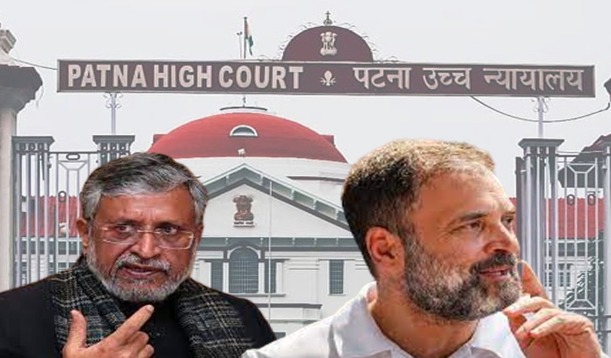
The Patna High Court on Monday adjourned the hearing on Rahul Gandhi’s petition to quash a criminal defamation lawsuit filed against him by Rajya Sabha MP Sushil Kumar Modi in Patna Court for his ‘Modi-Theives’ remark till July 4.
The interim stay of proceedings granted by the High Court on April 24 would remain in effect until the next date of hearing.
It should be noted that the Patna Court is currently hearing a criminal complaint filed by Sushil Modi (via Senior Advocate and former Additional Solicitor General of India SD Sanjay) under Section 500 of the IPC (Defamation) over Gandhi’s alleged remark “why all thieves share the Modi surname” made during a political rally in 2019.
It is Modi’s case that Gandhi made the derogatory remark against persons with the surname “Modi.” Gandhi was granted bail in the case in 2019.
Hearing the case on April 24, the High Court granted a stay of proceedings before the Patna Court. This order was passed just days after a supplementary affidavit was filed on Gandhi’s behalf before the HC on April 18, arguing that because Gandhi was tried and convicted for the alleged remark by the Surat Court, the case pending before the Patna Court would be subject to the doctrine of double jeopardy as enshrined in Section 300 of the CrPC and Article 20 (2) of the Indian Constitution.
For context, whereas Article 20 (2) specifies that no person shall be prosecuted and punished for the same offence more than once, Section 300 (1) CrPC prohibits a person from being tried not only for the same offence but also for any other offence based on the same facts.
In this regard, the affidavit further stated that in the instant case, the fact in question, the legal issues involved, and the accused are all the same, and the same speech is the foundation in both the instant and the Surat case, with the only difference being that the complainants in the two cases are different.
This affidavit was filed a few days after the Patna High Court ordered Gandhi to appear before it on April 25 to record his statements under Section 313 of the CrPC.




